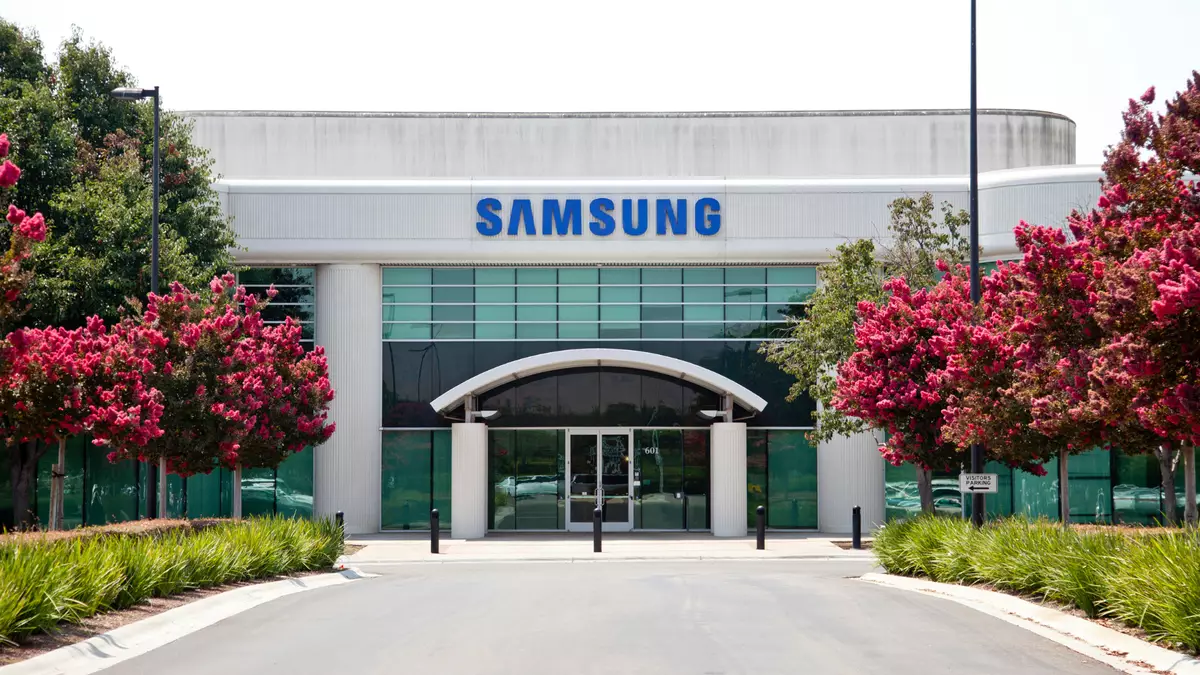In recent months, the trade environment in the United States has been fraught with unpredictability, primarily due to escalating tariffs imposed by the government. These tariffs, which began with a sweeping 10% increase and have since soared to as high as 32% for specific countries like Vietnam and China, have created a ripple effect in the tech and manufacturing sectors. As companies grapple with these disruptions, one company has found a silver lining: Samsung Electronics.
Though the tariffs have alarmed many manufacturers, igniting fears of soaring prices and constraining supply chains, Samsung has experienced a boost in sales, particularly in its memory chip and smartphone divisions. This unexpected advantage demonstrates how a savvy business can adapt to chaotic circumstances, capitalizing on customer behavior driven by fear and market speculation.
Profit Trajectory Amidst Market Challenges
Samsung’s profit report for the first quarter of this year showcases its resilience in this turbulent environment. The company projected an operating profit of 6.6 trillion won (approximately $4.47 billion), surpassing earlier estimates and marking a significant increase from the previous quarter. Even with a year-on-year decline, the uptick compared to the last period indicates that Samsung has effectively navigated the tumultuous waters stirred by tariffs.
Industry analysts attribute this surprising profitability, in part, to consumers’ preemptive buying strategies. As fears over rising costs loom large, customers have opted to stockpile essential products, pushing Samsung’s memory chip shipments upward. The global inventory strategies of various manufacturers are changing as companies adopt a more cautious approach to stock, moving away from Just-in-time manufacturing to a more conservative inventory procurement philosophy.
Implications for Manufacturing Strategies
This shift in purchasing behavior has significant implications for the manufacturing landscape. Traditionally, Just-in-time strategies allow businesses to minimize waste by synchronizing production schedules with demand. However, the threat of rising tariffs has caused many manufacturers to reconsider this approach, opting instead for inventory hoarding to buffer against potential future price hikes.
Greg Roh, a noted analyst from Hyundai Motor Securities, encapsulated this perspective by indicating that “strong demand from customers looking to secure inventory ahead of potential U.S. tariffs helped boost Samsung’s memory chip shipments.” This change could fundamentally alter how companies manage their supply chains and forecast purchasing needs in a world increasingly dominated by tariff-induced uncertainty.
Consumer Behavior and Future Trends
As Samsung capitalizes on the changing dynamics, the question remains: how sustainable is this growth amid predicted shipment declines in the coming months? Analysts warn of potential drops in product availability, which could reverse the current sales momentum. Consumers, responding to the fluctuating nature of pricing due to tariffs, may hesitate to invest in certain tech products in the future, leading to reduced demand as the initial panic buying wears off.
Samsung’s recent surge in phone sales, particularly with pre-orders for devices like the Galaxy S25, also highlights the psychological aspect of consumer behavior in a fluctuating market. The urgency to purchase before expected price rises showcases how comfortable buyers have become in relying on projected increases rather than waiting for standard market cycles.
Similarly, other tech companies face potential dilemmas. Nintendo has already paused pre-orders for its upcoming Switch 2 console, hinting at an adjustment in pricing strategies as it grapples with the implications of tariffs on its supply chain and pricing structure. Similarly, Framework’s decision to halt the availability of cheaper laptop options speaks volumes about the pressures companies face in maintaining profitability without compromising customer loyalty.
The landscape of international trade and tariffs is continually evolving, and companies like Samsung are at the forefront of adapting to these changes. As the market grapples with the fallout from unilateral trade policies, the ripple effects of consumer behavior, manufacturing strategies, and company profitability will reshape the tech industry in ways yet to be fully understood. Samsung’s current advantage may serve as a bellwether for other companies — a signal that adaptability and forward-thinking strategies matter more than ever in the face of uncertainty.

